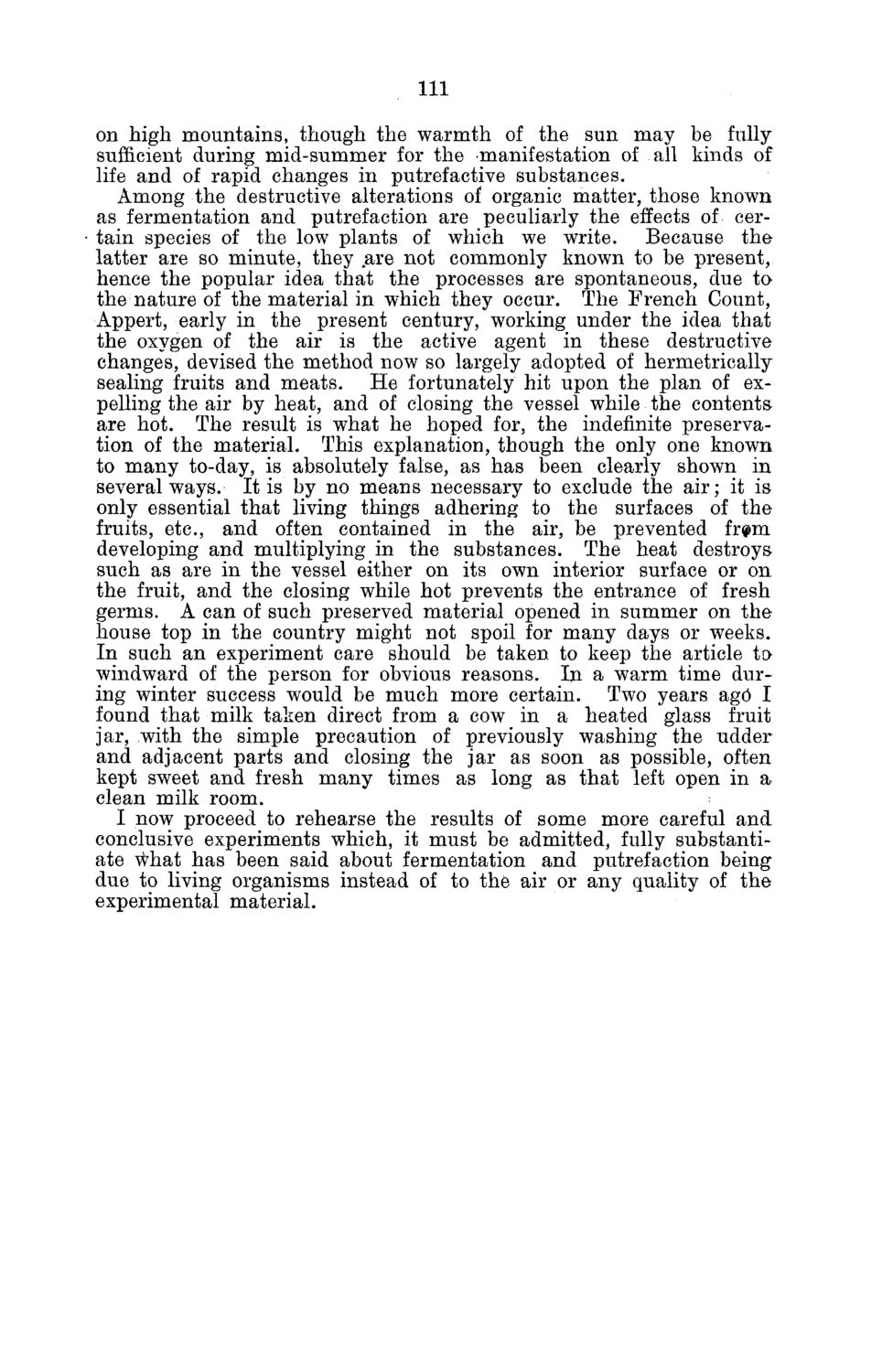| |
| |
Caption: Board of Trustees Minutes - 1882
This is a reduced-resolution page image for fast online browsing.

EXTRACTED TEXT FROM PAGE:
Ill on high mountains, though the warmth of the sun may be fully sufficient during mid-summer for the manifestation of all kinds of life and of rapid changes in putrefactive substances. Among the destructive alterations of organic matter, those known as fermentation and putrefaction are peculiarly the effects of certain species of the low plants of which we write. Because the latter are so minute, they .are not commonly known to be present, hence the popular idea that the processes are spontaneous, due to the nature of the material in which they occur. The French Count, Appert, early in the present century, working under the idea that the oxygen of the air is the active agent in these destructive changes, devised the method now so largely adopted of hermetrically sealing fruits and meats. He fortunately hit upon the plan of expelling the air by heat, and of closing the vessel while the contents are hot. The result is what he hoped for, the indefinite preservation of the material. This explanation, though the only one known to many to-day, is absolutely false, as has been clearly shown in several ways. It is by no means necessary to exclude the air; it is only essential that living things adhering to the surfaces of the fruits, etc., and often contained in the air, be prevented frg>m developing and multiplying in the substances. The heat destroys such as are in the vessel either on its own interior surface or on the fruit, and the closing while hot prevents the entrance of fresh germs. A can of such preserved material opened in summer on the house top in the country might not spoil for many days or weeks. In such an experiment care should be taken to keep the article to windward of the person for obvious reasons. In a warm time during winter success would be much more certain. Two years ago I found that milk taken direct from a cow in a heated glass fruit jar, with the simple precaution of previously washing the udder and adjacent parts and closing the jar as soon as possible, often kept sweet and fresh many times as long as that left open in a clean milk room. I now proceed to rehearse the results of some more careful and conclusive experiments which, it must be admitted, fully substantiate \^hat has been said about fermentation and putrefaction being due to living organisms instead of to the air or any quality of the experimental material.
| |